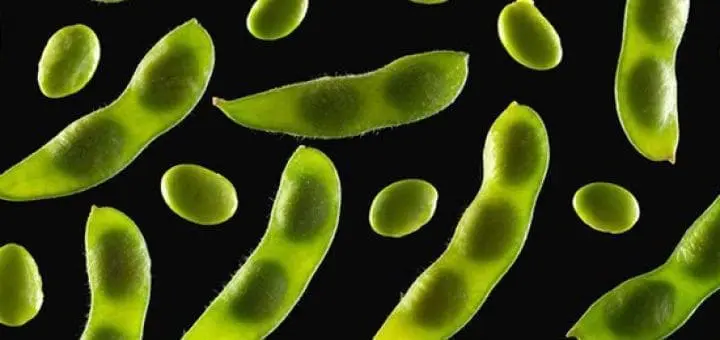Over the years, studies have shown conflicting evidence about soy products. Some studies have claimed that soy is the panacea for many health ailments, a superfood that is the solution to prevent many health problems. Other research, however, states that soy is responsible for behavioral problems and disrupts hormones in the body, thus causing serious health concerns.
Different Types of Soy
Soy is a protein derived from soybeans, which are legumes that historically originated from Eastern Asia in oriental cultures.
Traditional soy products are divided into two groups: fermented – such as miso, tempeh, tamari, natto, and unfermented – such as soybean oil, soy sauce, soy milk, soy protein powders, infant formula, and tofu.
Fermented Soy Products
Fermented soy products are produced as a result of microorganisms such as beneficial bacteria and yeast breaking down the specific carbohydrates found in soy.
This improves the digestibility and allows for better absorption into the body. Soy fermentation also enhances the solubility of minerals such as calcium, iron, magnesium, potassium, selenium, copper and zinc and enhances vitamin levels and overall nutrition by concentrating large amounts of the vitamin B complex and forming an enriched product. According to a 2006 study published in the Journal of Nutrition on osteoporosis, Japanese fermented soybeans, natto, have been associated with reduced bone loss in postmenopausal women. However, no comparison study was conducted to test the effect of unfermented soy products on this cohort group.
Unfermented Soy Products
The soybean most commonly consumed today is in an unfermented form.
Soy is used as a protein supplement for vegan/vegetarian eaters, and is commonly made into milk. Most soy, over 90%, in the United States is genetically modified. In a 2014 study published in Food Chemistry, organic soybeans showed the healthiest nutritional profile as compared to the conventional and genetically modified soy.
The GM soy crops, which comprise 93-94% of the soybeans produced in the U.S., contained high residues of a broad-spectrum called glyphosate, the main ingredient in RoundUp – which is the most widely used herbicide in the world. According to the World Health Organization in March 2015, glyphosate can cause cancer in humans, in particular farm workers dealing with these agrichemicals. Others exposed to the herbicide may develop Non-Hodgkin’s Lymphoma.
The Link to Soy with Behavioral Problems
Soy foods today are vastly different from those historically consumed in traditional Eastern Asian cultures. Most soy in the U.S. is used to make soybean oil. The waste product is used to feed livestock or processed to produce soy protein isolate (SPI). Studies have shown various deficiencies in rats that were linked to SPI, such as zinc and B12 and toxins that have been formed in the processing of soy. Despite these dangers, SPI is the basic ingredient of soy infant formula. A study conducted at the University of California, Irvine found that manganese, a mineral found in high levels in soy milk, appeared to be linked to behavioral disorders, learning disabilities, developmental disorders, mental health disorders, and ADHD.
This post originally appeared on About.com
Studies have shown conflicting evidence about soy-based products. Getty Images
References
1. Bohn, T., Cuhra, M., Traavik, T., Sanden, M., Fagan, J., and Primicerio, R. Compositional differences in soybeans on the market: Glyphosate accumulates in Roundup Ready GM soybeans. Food Chemistry, 153, 207-215.
2. Ericson, J., Crinella, R., Clarke-Stewart, K., Allhusen, V., Chan, T., and Robertson, R (2007). Prenatal manganese levels linked to childhood behavioral disinhibition. Neurotoxicology and Teratology, 29(2), 181-7.
3. Ikeda, Y., Iki, M., Morita, A., Kajita, E., Kagamimori, S., Kagawa, Y., and Yoneshima, H. (2006). Intake of fermented soybeans, natto, is associated with reduced bone loss in postmenopausal women: Japanese Population-Based Osteoporosis (JPOS) Study. The Journal of Nutrition, 136(5), 1323-8.
4. Sass, J. (2015). Glyphosate herbicide linked to cancer – IARC World Health Organization assessment. Retrieved from: https://www.nrdc.org/experts/jennifer-sass/glyphosate-herbicide-linked-cancer-iarc-world-health-organization-assessment.
Helpful Articles




Where are the peer-reviewed studies that support the claims of this article?
Thank you, they have been included at the bottom of the article.